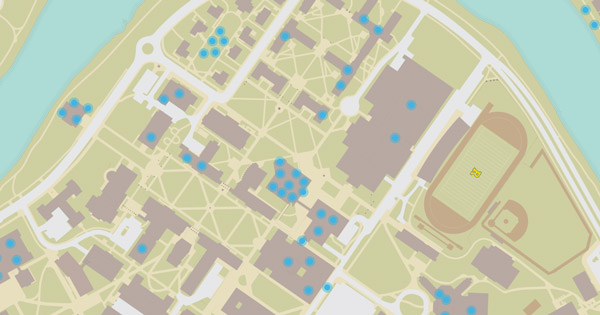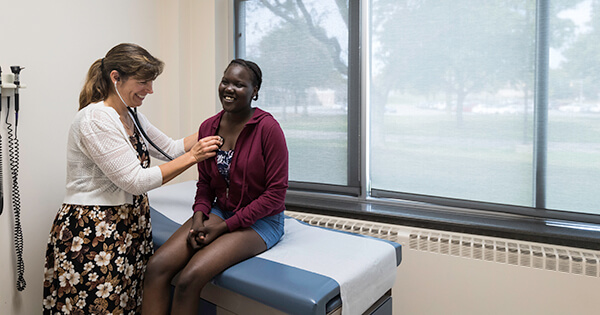URMC investigating new Parkinson’s drug
 The University of Rochester Medical Center Clinical Trials Coordination Center (CTCC) has been tapped to help lead a clinical trial for a potential new treatment for Parkinson’s disease. The study will evaluate nilotinib, a drug currently used to treat leukemia that has shown promise in early studies in people with Parkinson’s disease.
The University of Rochester Medical Center Clinical Trials Coordination Center (CTCC) has been tapped to help lead a clinical trial for a potential new treatment for Parkinson’s disease. The study will evaluate nilotinib, a drug currently used to treat leukemia that has shown promise in early studies in people with Parkinson’s disease.
Cynthia Casaceli, M.B.A., the director of the CTCC, will oversee the operations of the study, which will be conducted through the Parkinson Study Group at 25 sites across the U.S. URMC is not a recruiting site for the study. The clinical trial is being led by Tanya Simuni, M.D., with Northwestern University and supported by the Michael J. Fox Foundation.
Nilotinib is a FDA-approved treatment for chronic myelogenous leukemia. The drug inhibits the activity of c-Abl, a protein that can accumulate in toxic levels in the brain and has been linked to cellular pathways associated with Parkinson’s disease.
Preliminary results from a small Phase I clinical trial at Georgetown University evaluating the safety and tolerability of nilotinib in people with advanced Parkinson’s disease demonstrated the potential motor control and cognitive benefits of the drug. The new Phase IIa trial – called NILO-PD – will expand on these findings, attempt to determine the appropriate dosing levels for patients, and better evaluate the drug’s long-term use in Parkinson’s patients. The study will also investigate nilotinib’s potential to treat Parkinson’s symptoms and slow or stop progression of the disease.
The study is another example of repurposing existing drugs that have already been approved by the FDA for other diseases – an area of increased focus for disease like Parkinson’s because it can speed up the evaluation and approval processes. Repurposed drugs can usually skip Phase I clinical testing because they are already proven safe in human volunteers. However, Phase II and Phase III trials are required to rigorously evaluate these treatments for new indications.
The CTCC is part of the Center for Health + Technology and is a unique academic-based research organization with decades of experience working with industry, foundations, and governmental researchers in bringing new therapies to market for neurological disorders. Since its inception in 1987, the CTCC has played a central role in bringing seven new drugs to market to treat Parkinson’s disease, Huntington’s disease, and periodic paralysis.
For more information about the study, which will continue through 2020, visit:
—URMC PR, February 2018 (read the original NewsCenter story here.)






